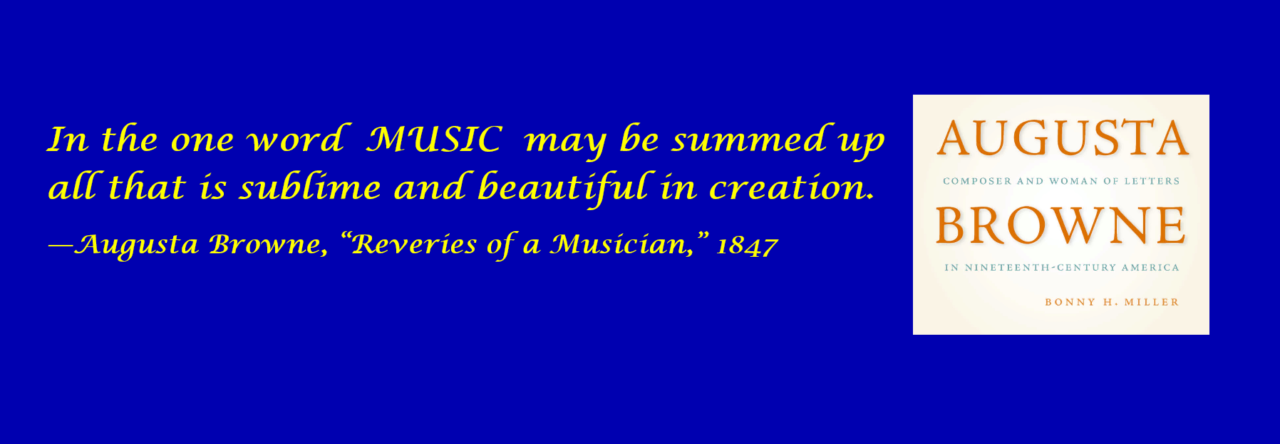Who was J. W. B. Garrett, whom Augusta Browne married in September 1855, within weeks of first meeting him?
J. W. B. (John Walter Benjamin) Garrett was an artist who specialized in portraits, especially paintings made from small daguerreotypes, just as families today can commission a portrait to be painted from a photograph. Augusta Browne never revealed how they became acquainted. The connection might have occurred through an introduction at an art gallery, at church, a concert, or through mutual acquaintances at the Home Journal, in which Augusta published stories and Garrett advertised his services as a portraitist. Garrett exhibited a portrait of William Henry Browne, the composer’s younger brother, at New York City’s National Academy of Design in 1857. It seems plausible he would have made a portrait of his new wife, Augusta, but no evidence proves its existence.


